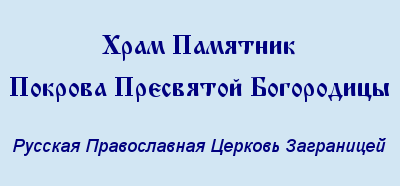Страстная неделя является вершиной всего годичного литургического круга, поэтому нам следовало бы хотя бы что-то ежедневно прочитать из служб этой недели.
Я предлагаю несколько вариантов, как можно приобщится этому богатому литургическому наследию в наших сегодняшних условиях:
Первый вариант (самый простой и короткий)
На Страстной Неделе евангелие читается на практически всех службах, поэтому первое что каждый человек может сделать это прочитать ежедневно положенные евангельские чтения. Указания на эти чтения можно найти в любом православном календаре.
Второй вариант
Добавить к чтению Евангелия кое-какие песнопения из Постной Триоди (я уже присылал Вам ссылку на этy книгу). Главными песнопениями любого праздника являются тропарь и кондак. Если Вы желаете глубже погрузится в эти службы, можно помимо тропаря и кондака добавить следующие песнопения: 1) канон (или как чаще всего он называются – трипеснец) из утрени, 2) стихиры из утрени, 3) седальны из утрени, 4) каноны с повечерия.
Третий вариант
Читать службы как они совершаются в храме. Если Вы будете так молиться, можно найти полные службы здесь: http://posledovanie.ru/posledovaniya/bogosluzheniya-velikogo-posta/. При этом надо заменять ектеньи чтением “Господи помилуй” 12 раз, как это было указано в распечатках, которые мы помещаем на наш приходской сайт. Если хотите, вы можете сами попробовать собрать службы. Для этого нужен часослов, постная триодь, Евангелие и псалтирь. Указания о том, как это сделать можно найти здесь: http://calendar.rop.ru/?bui=102. У нас в храме мы довольно сильно сокращаем чтения кафизм из псалтиря.
Мне кажется главное что можно прочитать в течение всей недели это следующее:
-ежедневные евангельские чтения
-ветхозаветные чтения великой субботы (они содержат пророчества о воскресении Спасителя)
-канон на повечерии великой пятницы (плач Богородицы)
-утреня великой субботы (статьи и канон)
Прошу у всех молитв!
свящ. Алексей
++++++++++++++++++++++++++++++++++++
Holy Week is the pinnacle of the yearly liturgical cycle. Thus it would be good to read at least something, on a daily basis, from the services this coming week.
Below are several variations on how you can delve into the rich liturgical heritage of these services in today’s extraordinary circumstances:
First option (the simplest and shortest)
During Holy Week, the Gospels are read at practically every service. Therefore, the first thing that everyone can do is to read the daily Gospel readings. You can look up these readings in any Orthodox calendar.
Second option
You can add to the Gospel readings some of the hymns from the Lenten Triodion (I’ve already sent you a link to this book). The main hymns of any feastday are the troparion and kontakion. If you wish to examine the services deeper, you can also read the following hymns: 1) the canons (or, as they are more often called during Lent – three ode canons) from matins, 2) the stichira from matins, 3) the sedalions from matins, 4) the canons from compline.
Third option
You can read the services the way they would be done in church. You can find the services in an easy-to-follow format here: http://www.saintjonah.org/services/holyweek_index.htm. The litanies should be replaced with ‘Lord have mercy!’ twelve times, in the same fashion as was done in the printouts of the services posted to our parish website. If you wish, you can attempt to put the services together yourselves. To do this you need an Horologion, the Lenten Triodion, the Gospels and the Psalter. You can find guidelines for putting the services together in Russian here (I’m not sure the rubrics exist online in English): http://calendar.rop.ru/?bui=102. We significantly shorten the kathisma readings from the psalter in our parish.
It seems to me that the following texts are the most important to read this week:
-all of the daily Gospel readings
-the Old Testament readings of Holy Saturday (these are the prophecies of Christ’s resurrection)
-the canon at compline on Great Friday (the lamentation of the Mother of God)
-Matins of Great Saturday (Psalm 118 with the accompanying troparia between each verse, as well as the canon)
Please also pray for me!
priest Alexis
- Войдите, чтобы оставлять комментарии







